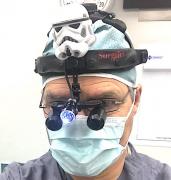-
Site Supporter

Ordnance gelatin test assessment for rifle and pistol calibers
8/23/11
Rifle Calibers
Lots of folks seem to have difficulty in interpreting and assessing gelatin test shots from rifles.
Assuming properly prepared, validated, and sized gel blocks:

“Barrier Blind” ammunition should demonstrate minimal changes in terminal performance between unobstructed shots into bare gelatin and those obstructed by intermediate barriers.
With proper gel testing does the gel blocks are NOT dyed, as this prevents accurate interpretation of the data and overemphasizes the temporary cavity effects.
Last edited by DocGKR; 02-03-2019 at 12:19 AM.
-
Site Supporter

Pistol Calibers
Gelatin validation needs to be performed on each block of 10% Type 250A ordnance gelatin that has been stored for several days at 4 degrees Celsius. To accomplish this (GEL CAL), a 0.177" steel BB is fired into each block at 590 fps +/- 15 fps, with an ideal range of penetration defined as 8.5 cm +/- 1.0 cm of penetration, although up to +/- 1.5 cm is considered acceptable. Duncan MacPherson's book Bullet Penetration has more information on gel validation.
Common testing includes either an FBI type assessment using at least the six standard FBI tests at 10 feet (bare gel, heavy clothing, sheet steel, wallboard, plywood, auto glass), with the possible addition of the heavy clothing and auto glass tests at 20 yards or a three event IWBA type test using bare gelatin, 4 layer denim, and auto windshield tests all at 10 feet.
Typically weapon type and barrel length are reported, along with ammunition type, manufacturer part number, along with lot number.
Generally, at least five rounds of each ammunition type should be shot into gel for each test event.
Velocity (VEL) is recorded using an appropriate chronograph.
After penetration depth (PEN) is recorded, the bullets are recovered, then weighed on a digital scale and measured using digital vernier calipers. Ideal penetration for duty projectiles is in the 12 to 18 inch range.
The recovered diameter (RD) of each bullet is calculated by averaging the largest and smallest diameters measured at the leading edge of the deformed bullet. The length of each recovered bullet (RL) is also measured. Good RD's are around 0.60" for 9mm/357Sig, 0.65" for .40S&W, and 0.70" for .45ACP.
The RD is the measurement that seems to cause the most error. Below are several projectiles showing how the largest and smallest diameters are measured:

All shots fired from a S&W 4006 with 4" barrel at a range of 10 feet with gel cal=10cm@578fps; from left to right:
.40 S&W Winchester 180 gr bonded JHP (Q4355): vel=946fps, pen=15.2", max diam=0.66", min diam=0.62", thus RD=0.64", RL=0.38", RW=182.5gr
.40 S&W Remington 180 gr JHP Golden Saber (GS40SWB): vel=951fps, pen=14.0", max diam=0.66", min diam=0.62", thus RD=0.64", RL=0.37", RW=180.0gr
.40 S&W Federal 180 gr JHP HST (P40HST1): vel=965fps, pen=15.0", max diam=0.77", min diam=0.51", thus RD=0.64", RL=0.38", RW=182.5gr
.40 S&W Corbon 140 gr bonded JHP DPX (Barnes XPB bullet): vel=1137fps, pen=12.8", max diam=0.77", min diam=0.50", thus RD=0.64", RL=0.38", RW=140.4gr
While on a casual first glance, both the Corbon DPX and Federal HST could initially appear to have larger expansion, the actual measurements demonstrate that all the recovered .40 S&W projectiles in the photo above, in fact all have exactly the same RD of 0.64". Also, be mindful that RD measurements are made at the leading edge of the projectile, not further back down the expanded "petals", as this can give a false reading. For example, in the photo above, when measured half-way down the expanded projectile, the widest part of the expanded "petal" measures 0.84", much larger than the calculated RD of 0.64".
When assessing recovered projectiles, those that have sharper leading edges are favored, as they have a superior cutting ability. In addition, consistent performance across the various test events is a preferred characteristic.
Last edited by DocGKR; 02-03-2019 at 12:17 AM.
 Posting Permissions
Posting Permissions
- You may not post new threads
- You may not post replies
- You may not post attachments
- You may not edit your posts
-
Forum Rules




